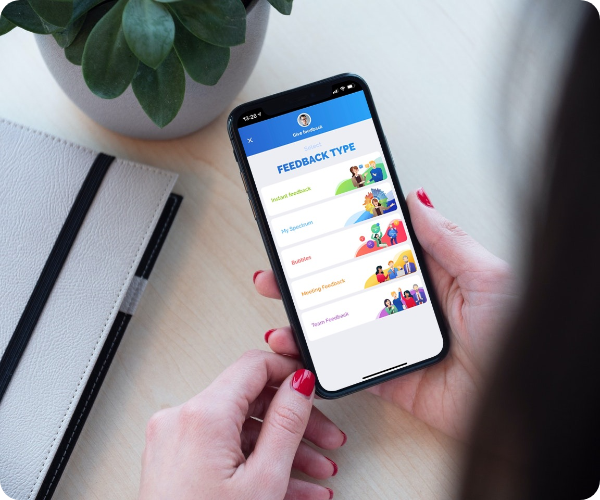PERFORMANCE & PRODUCTIVITY
Unlock Performance With Empathy

Empathy is widely touted as a good thing to encourage, build and champion in work. But the benefits of empathy for business leaders and for employees differ, and it’s right for leadership figures to understand their own unique balance of feedback, collaboration, understanding and kindness that builds the right level of emotional intelligence in your company.
According to psychologists Daniel Goleman and Paul Ekman, there are three categories of empathy:
- Cognitive empathy - the ability to understand how someone feels
- Emotional empathy - the ability to share the feelings of another person
- Compassionate empathy - the ability to take action and help others.
Different social environments and groups of people require different levels of empathetic engagement - the relationships you sustain outside of work are not the same and should not be treated the same as the ones developed inside of work.
But empathy can be developed. It can be trained, and it should be promoted within workplaces to benefit every stakeholder in any professional setting.
The key thing for managers, team leaders and staff to do is understand why empathy and emotional intelligence is so important in work, personalize it for your workplace, and consistently apply the strategies put in place to benefit every person in your workplace.
How empathy improves leaders’ performance
If a careful curation of managerial empathy is the secret to workplace emotional intelligence, then leaders need to develop a novel form of leadership that personalizes and grounds feedback in tangible meaning and goal setting, whilst maintaining the objectivity and dispassionate critical thinking required to manage people.
Empathy delivered in this regard has to be consistent to your management style, truthful, patient and above all communicative.
Consider unproductivity - the source of a team or individual’s loss of productivity can vary immensely, so it’s on you, as the leader, to approach this sort of situation with a mix of candor (important for maintaining business priorities and establishing true, balanced feedback for improvements), and empathy (understanding the why behind the loss of productivity).
It’s worth reiterating that the individual members of your team will not react to stresses, pressures, unhappiness or a lack of engagement the same way, so empathy needs to be targeted and it needs to hone in on how you, the leader, can help individuals (and therefore the whole team) progress.
This means you need to do the following:
- Set the example you want to see in your teams by focusing on empathetic feedback, discussion, communication, team building and line of command in your job as leader, consistently.
- Incorporate empathy training (where appropriate) into your performance management, and encourage your team to work within structures that value empathy and emotional intelligence.
- Adhere to consistency - people are mimics within the workplace, and if negative ideas or behaviors become prevalent, others will follow in those footsteps. Highlight and elevate empathy “leaders” in your leadership teams, and make empathy a top-down issue, rather than a bottom-up demand.
Never miss a LutherOne article or e-Book: SUBSCRIBE
How empathy improves employees’ performance
- Building and maintaining an empathetic environment in a workplace benefits your employees in two ways: it generates a more understanding, more emotionally intelligent and more supportive environment of collaboration; and it underpins your working culture in personal growth through interactions with others.
- No employee is an island, and business leaders need to create a matrix of interaction, meaning, collaboration and success between teams, departments or offices to guarantee success as one.
- Demanding that your staff be empathetic at all times is impossible - you cannot make your staff feel a certain way about work, life or co-workers - but you can encourage your teams to be more empathetic, more understanding and less quick to judge, refute, patronize, dismantle or abuse. This, in turn, generates a self-fulfilling system of empathy creation, where empathy creates empathy.
- As we mentioned above, empathy is a top-down issue - if staff see management acting and reacting to circumstance with patience, perspective and temerity, staff will too. This sort of empathy encouragement may be a touch passive, but it’s been proven to work: seeing as the basis for effective empathy is “seeing another person’s perspective”, if your teams develop empathy at critical moments such as during disagreements, onboarding new teams, during disciplinary structures and throughout performance management, teams will become happier, more driven, better team players, less discriminatory and more agile to changes to work flow, personnel changes or external issues.


